The truth is being a big fish in a small pond comes with many advantages. Being an "A" student with high standardized test scores in a public high school can help your child stand apart. In addition to all of the extra attention you'll get from teachers as one of the building's superstars, you'll also be able to bring the tangible credential of class rank to the college admissions table.
Many of the most selective colleges in the country draw the bulk of their freshman from the top-10% of high school classes. For example, at Swarthmore 93% of first-year students were top-10 finishers, at MIT this figure is 95%, and at Washington University in St. Louis "only" 84% earned this designation. Now, most elite private schools can get around this by not submitting class rank information, but those students do not escape being ranked against their classmates who are applying to the same elite schools. In contrast, public school students usually deal with far less internal competition at particular colleges during the application process. If Duke is your dream school, and you have the stats that make you a strong applicant, you don't have the added worry of having to edge out the seven prospective Blue Devils within a row of you in Calculus class. These highly prestigious private universities are known for their top-notch academic programs, as well as their hefty tuition rates.
Many students dream of attending one of these schools, but the low acceptance rates make it tough to obtain an Ivy League education. There is a common belief out there that students hailing from private high schools have better odds of getting into Ivy League colleges. There are many folks who believe that if they don't send their children to fancy private schools, they will be at a significant disadvantage when they apply to Harvard, Dartmouth, Princeton, and Brown. The fact is that these parents are absolutely, positively wrong. Students hailing from private schools do not have better odds of getting into highly selective colleges — like the Ivy League colleges — than students hailing from public schools. Many independent school counselors started in college admissions, often at highly selective colleges; one of the newest members of this rank was a dean of admissions at an Ivy League university just last fall.
These high schools are paying not just for experts who know the rules of the game; they are paying for experts who know the referees. Legacy, donor, and athletic preferences should be stripped out of college admissions too, but when it comes to tipping the scales away from fairness and equity, private schools outweigh everything else. Clearly attending a school of Harvard-Westlake's ilk can put you in good standing come admissions time. The counselors at these schools are on a first-name basis with admissions offices at the finest universities in the country and that can undoubtedly work to your advantage. On the other hand, being an "A" student with high standardized test scores amidst a sea of comparable, or even superior students, can be a harrowing experience. One could argue that there is value in learning to walk with giants—after all, law school, med school, or a high-powered job in a Fortune 500 company will involve just that.
There may be validity to this line of thinking, but one must also recognize that not every kid is ready to be thrust into cutthroat academic competition at the tender age of 14 or 15. Further, despite the success of the class at large, if your kid was the 7th most talented University of Pennsylvania-hopeful at Harvard-Westlake, they may have been handed a rejection letter. At a less competitive public or private high school, it's quite possible their Quaker quest would have ended differently, assuming they possessed the same test scores and placed near the top of their class.
Liberal arts colleges, both private and public, are located all over the United States. If you prefer to live in a certain part of the country or want to stay close to home, the location of Ivy League schools might be a consideration. Because all Ivy League schools are private universities, tuition costs are higher for students compared to their in-state public tuition alternatives.
However, Ivy League schools also have the reputation for being generous with financial aid due to their large endowments. Instead, parents and students who want to understand what a private school education offers them need to look at the process of the education and what it has provided students in order to prepare them for life after high school. Although Cornell University has the highest acceptance rates of all Ivy League schools, this does not mean that it's an easy school to get into. To be a competitive applicant for any of these eight prestigious institutions, you cannot slack off when it comes to your applications. Start planning your acceptance strategies early, which means studying hard at school and planning ahead for your standardized tests. If you have not been involved in an extracurricular activity since childhood, plan to seriously commit to an activity as early as you can.
Choose something you love to do as this will be evident in your application components. Most importantly, do not choose to go to an Ivy League school for appearances. Choose a program you actually want to attend and graduate from, rather than a program that will look good on your CV. Prestige and social status do not necessarily translate into better educational fit for you. Choose happiness and invest in your education in a school you truly want to attend. It is easy to say "plan ahead", but there is a lot of advantage in knowing what school and program you would like to attend in the future.
If you are certain about which school you want to enroll in, it might be wise to apply through the Early Action/Early Decision program. This way, your deadline for application is earlier, but so is your response date. To utilize this opportunity, you must research your school of choice and determine whether you are a good fit for the program to which you're applying.
Early Action programs give you an early answer as to where you stand in the admissions process. According to most recent data, Cornell's acceptance rates for their early decision program is 22.7%! UPenn's early decision program admitted 18% of early applicants! Each Ivy League college has its own unique accomplishments that make it important.
All carry a certain reputation with them, and each school has programs that excel primarily in the medical and law fields, making them some of the most sought-after schools in the world. Their admissions process is very selective, which helps the schools ensure that they only accept the best and brightest. Many famous people have graduated from Ivy League schools, including recent presidents George W. Bush, Bill Clinton, and Barack Obama. This prestige leads many to believe that these colleges are only for the wealthy and elite. Often, companies look for Ivy League graduates as potential employees, usually preferred by law firms, medical facilities, and large corporations.
It has long been coveted to have earned a degree from an Ivy League school. Today, there are other competitors that some claim to be just as good as their Ivy counterparts. Some of these well-known schools include Duke University, Johns Hopkins, MIT, Vanderbilt, and Georgetown University, to name a few. The Ivy League schools are still excellent in both academia and in sports, and they have left a legacy of higher education with an exceptional track record and reputation to go along with them. Fourth, admissions offices should redact the name of the school during the admissions process and stop assigning applications by region, as most highly selective colleges do. Context is essential for admissions officers to consider applicants' merits rather than their accomplishments.
A file could still contain relevant information about a high school, such as the number of students on free lunch programs, or its student-to-counselor ratio. Going school-blind would not erase context, but it would hide the brand names. Most independent schools do provide some financial aid, but it often goes to a small share of students. At Marlborough, an independent school in Los Angeles where the cost of attendance is about $45,000, only 20 percent of families receive financial aid, and almost half of those who do still make more than $200,000 per year. About 6 percent of all the school's students come from families making less than $100,000, even though almost two-thirds of American households make less than that. If you're living in the same state as a Public Ivy—or can establish residency near your school of choice before college—it's probably themost affordable wayto get an outstanding education.
Nonetheless, you'll want to apply to a variety of colleges, including some public schools that are lower on your list and private schools that may be a financial or academic reach. Located on Manhattan's Upper West Side, Trinity is notably at the top of the list. The institution was founded more than 300 years ago as a school for the poor and was originally supported by charity. Its classes are considered the best in the nation, with its core curriculum focused on "inquiry-based" learning.
Catering to grades K-12, Trinity now has an average enrollment of 960. The senior class is compromised of 113 students, 28% of which receive financial aid. Of the 214 students who took Advanced Placement classes in 2013, 93% received grades of 3 or higher. Approximately 41% of its graduates attended prestigious Ivy League colleges.
Are The Ivy League Schools Private Although you might assume that private colleges are academically stronger than public colleges, take a look at the reputation of all departments and programs within said institutions and how they compare to one another. Many public schools offer excellent programs or majors with reputations that may be stronger than that of the college overall. Ivy League schools have a reputation for being elite institutions, with high selectivity during the admissions process. Harvard University is currently the most selective university in the country. Out of 57,435 applications received for the Class of 2025, Harvard admitted only 3.4 percent of applicants. While the admissions process is extremely selective, it is not impossible for first-generation students to earn a spot in these world-class schools.
For example, 16 percent of Yale's Class of 2025 are the first member of their family to attend university. However, the Ivy Leagues have recently come under fire for their admissions processes, which critics say favors legacy students to the detriment of minority students. Which private schools send the greatest percentage of their students there? Here's our list of the Top 14, with an average acceptance rate for those elite universities of about 33%. Ivy League schools are some of the most selective colleges in the United States, and they also rank among the country's top private universities.
Ivy League schools' acceptance rates are typically less than 10%. Attend this workshop to learn about what these colleges and universities look for in a transfer applicant. The institution was founded in 1746, making it the fourth oldest university in the United States.
It is a medium-sized institution with around 5,000 undergraduate enrollments, and like Harvard, has an extremely competitive acceptance rate of only 5%. Some of its most popular degrees include computer engineering, public policy analysis, and economics. It is rated #2 of the best colleges in America to study political science and public policy analysis.
SAT grades range from 1440 to 1570 and ACT grades range between 32 and 35. It is by no means true that a private school is always better than a public school, and it is true that public schools can often be more diverse than many private schools. However, the cost-benefit analysis of any particular school must be carried out with a particular student in mind.
The true value of a school is what it offers to that student, not just what it offers in terms of college admissions. The true value lies in what the school offers with regard to a student's life-long learning. Applying to private school, despite the hefty price tag, might be the best thing you've done yet.
Graduating from private high school is a far larger advantage at many top ranked colleges than playing sports or being a legacy or even having a connection to a donor are. If we really wanted to get rid of the most glaring case of bias at prestigious private universities, we would target private high school students. They take the time to get to know applicants and select those who they think will take advantage of Columbia's community and offer a meaningful contribution to the community. Columbia offers generous financial aid programs to qualified students. Relatedly, many public universities offer special programs or honors colleges, just as several Public Ivies do. Not only do these programs allow your child to obtain a more intimate college experience, they also tend to offer greater academic challenges due to their more selective admissions processes.
My biggest concern is that my home school doesn't offer AP classes. I know that an a-g course is some sort of california approved college prep course. But im not sure how that translates to out of state or ivy league colleges? I am willing to put in the work but im just confused and worried as to how the whole thing works. The student body is a diverse mix of talented, open-minded, and empathetic individuals. Study Cornell's culture and university philosophy to determine if you're a good match.
D3 programs offer a more well-rounded college experience where academics take more of the lead. Just like their D1 and D2 counterparts, D3 athletes also must learn to manage playing their sport while pursuing their education. The time commitment, however, for D3 athletes is not nearly as intense which gives them more opportunity to explore life outside of the classroom and outside of their sport.
D3 athletes often feel they are more a part of the general college community where D1 and D2 athletes feel a little more separated from the rest of the college or university. This zero sum situation means that if there are a preset number of slots that go to the wealthy, to alumni, or to the powerful, then that number of slots is not going to people who don't have the money to attend. If you do favors for the wealthy in the admissions process, then you aren't a need-blind admission system, and you don't quality for the antitrust exemption.
But the complaint also shows that, far from merely letting in the children of the wealthy while otherwise in all other areas being need-blind, many of these institutions actually discriminate against students who need scholarships. Vanderbilt, Penn, and Columbia don't seem to be need-blind, with Penn and Vanderbilt officials conceding that who they accept off the waiting list depends in part on who needs financial aid. Trinity School, located on Manhattan's Upper West Side, offers students rigorous academics. This K-12 school is popular with elite colleges, with many seniors graduating into some of the most competitive universities in the country. Students generally feel that the school does a great job of preparing them for college and in supporting them throughout the applications process. Many elite private schools boast close relationships with admissions offices at prestigious colleges, but some schools emphasize the holistic development of each student and matching them with best-fit schools.
The process of applying to US universities is not only complex, but also highly competitive, with acceptance rates to top universities like Harvard, now under 4%. Crimson's unique approach lifts students above the global applicant pool addressing every aspect of the application with equal intensity. Book a free consultation to learn how Crimson can help you get into your dream Ivy League. Elite preparatory schools have long been a viable path to Ivy League education. Although public high schools now account for approximately half of the admissions at these top universities, when you look at the per-school percentages, private school students still have a strong edge.
According to an article in MarketWatch, 94 of the top 100 Ivy League feeder schools were private. A main difference between Ivy League schools and regular liberal arts schools is their acceptance rates. Ivy League schools are notorious for having highly competitive acceptance rates, and according to a 2012 CNN Money Report, those rates are getting even lower.
Harvard and Yale had 5.9 percent and 6.8 percent acceptance rates, respectively, and the Ivy League school with the highest acceptance rate was Cornell at 16.2 percent. I created a table with each school's ranking, location, and undergraduate enrollment. The average ranking is based on counting the school's US News ranking twice.
You can click on each school's link to see the average high school GPA of admitted applicants, its standardized test scores, and its acceptance rate. Plus, if paying for college is a concern for your family—as it is for many—it's a good idea for your child to apply to atleastone public university in your state to ensure that there's a relatively affordable option on their list. Even if your family is lucky enough to have a Public Ivy in your home state, this shouldn't preclude your child from considering what other public schools in your state have to offer. Depending on what your child wants to study or if there's a particular honors program that appeals to them, they may find a great fit elsewhere.
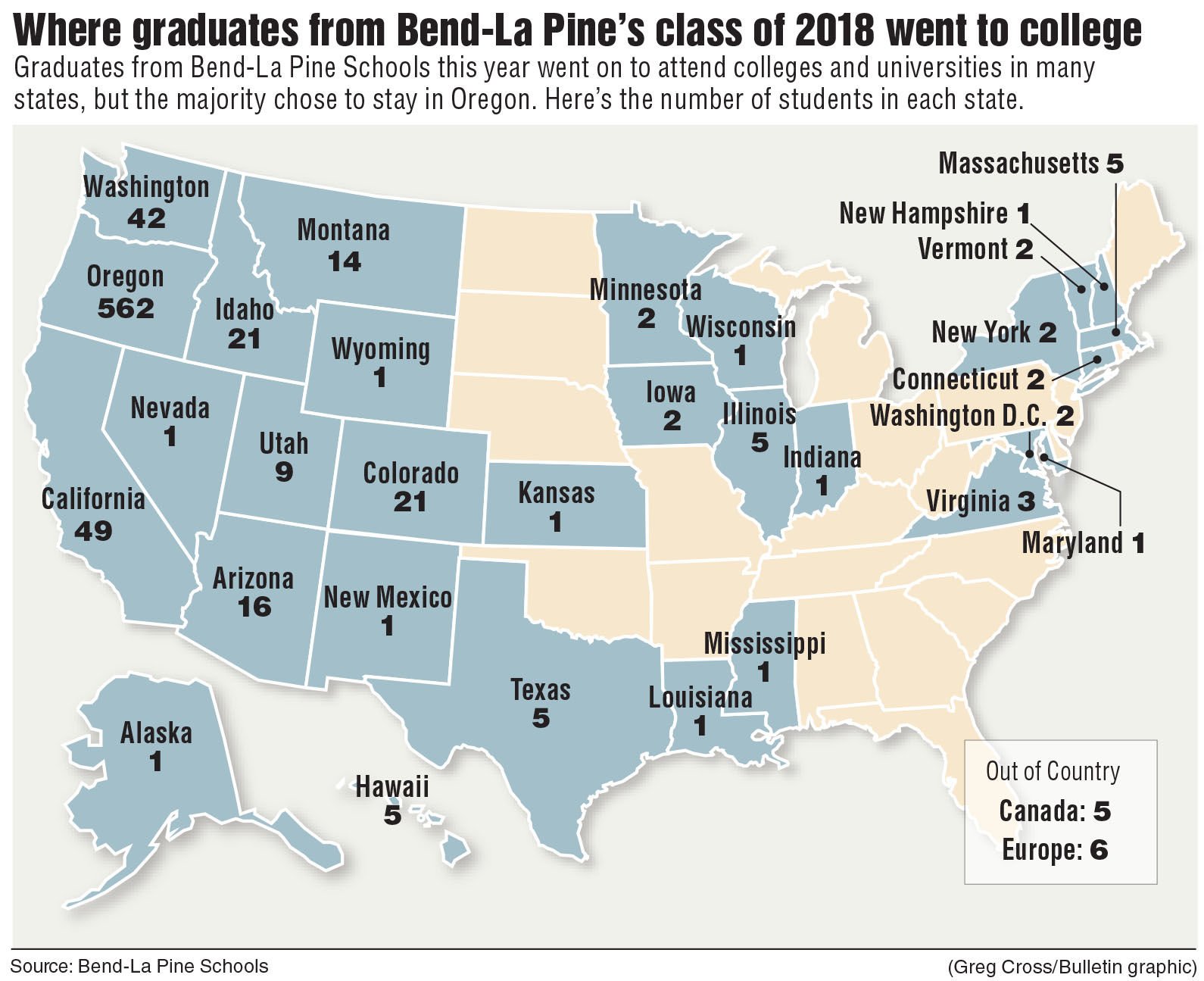


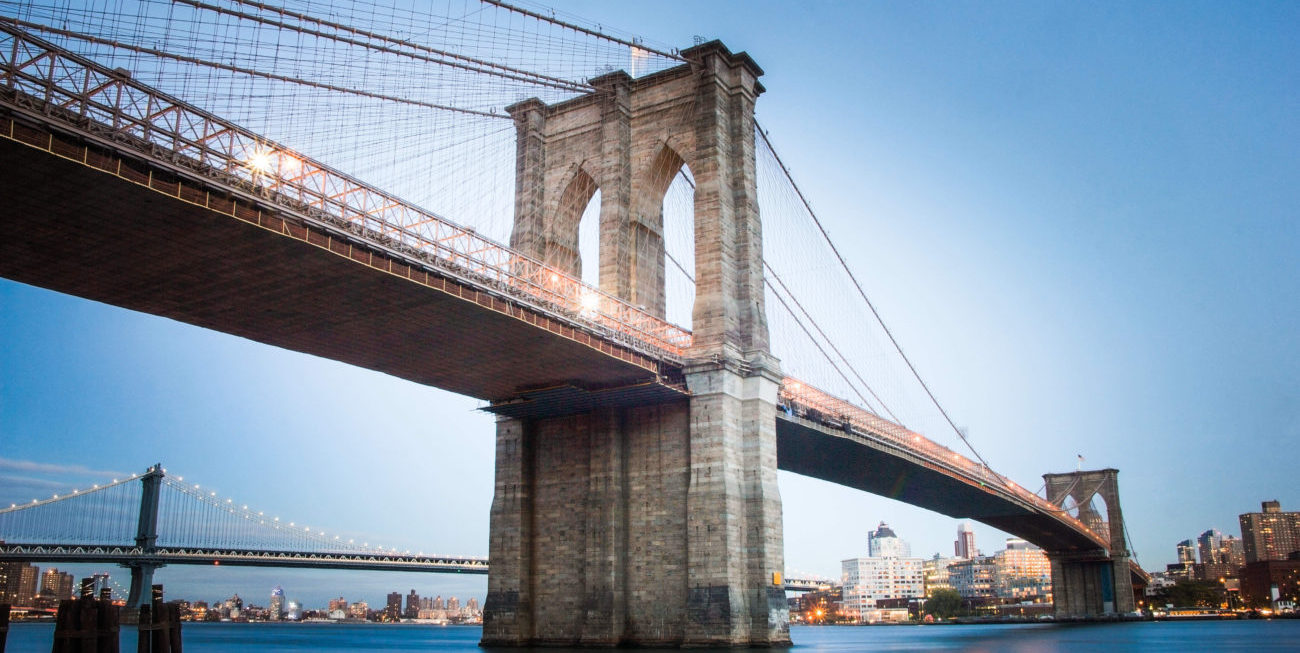










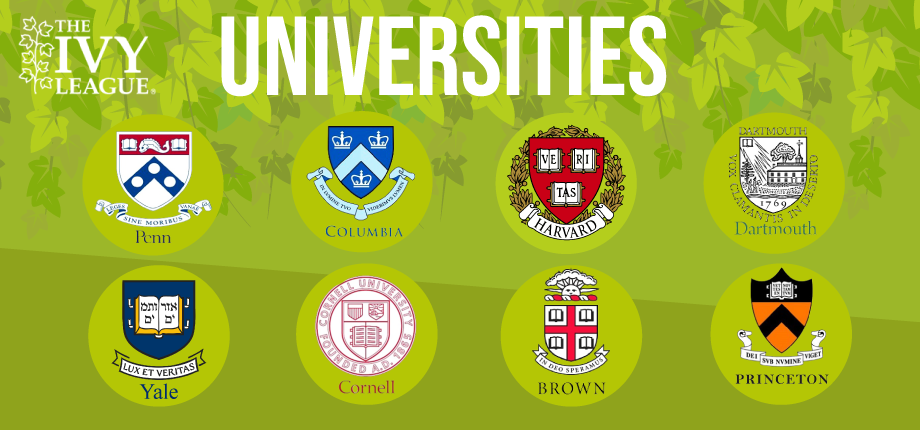







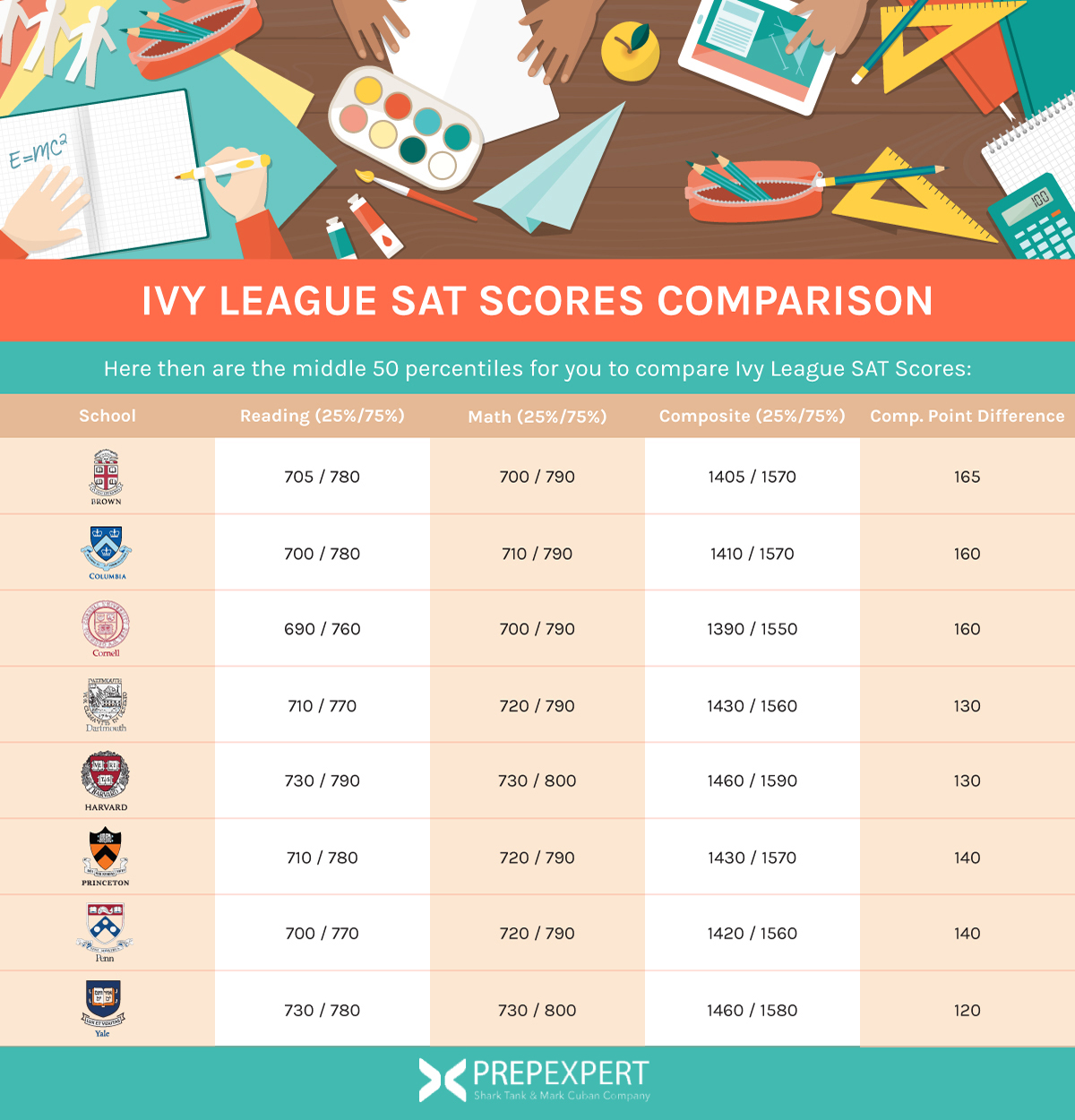

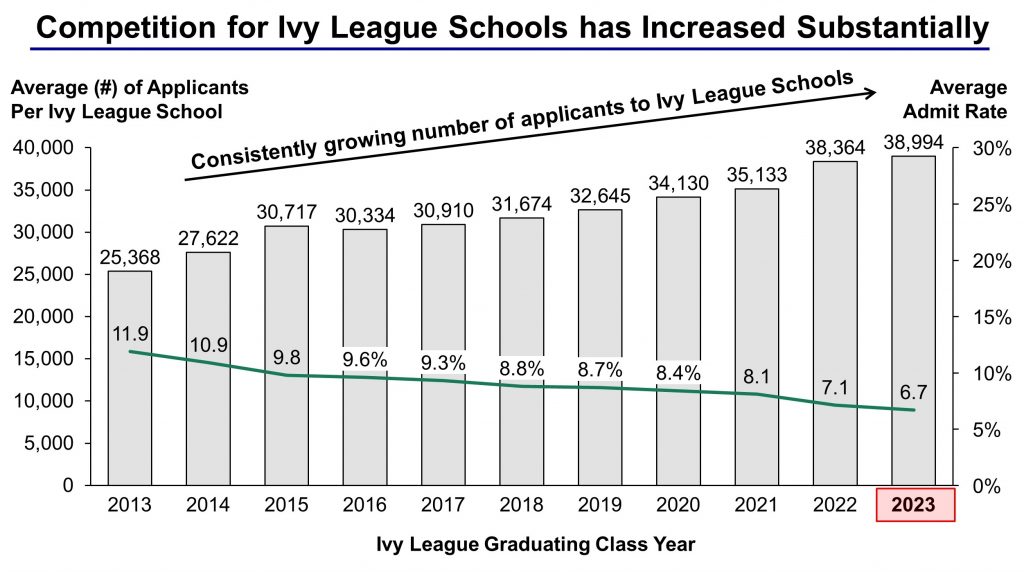


No comments:
Post a Comment
Note: Only a member of this blog may post a comment.